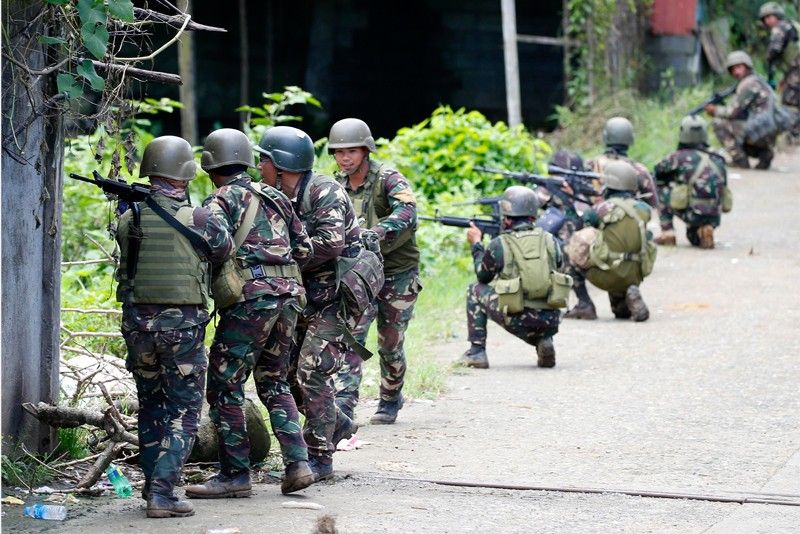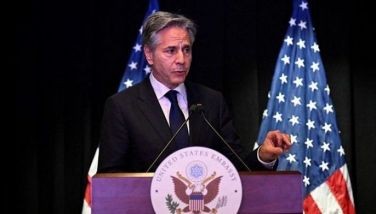Proposed Human Security Act amendments raise rights concerns

MANILA, Philippines — The proposed amendments to the Philippines' Human Security Act of 2007 could give the government a license to commit human rights violations, an international organization of lawyers and judges said on Monday.
In its submission to the Technical Working Group of the House Committees on Public Order and Safety and National Defense and Security, the International Commission of Jurists urged the chamber to reconsider some proposed amendments that it said would violate international law.
The ICJ said that some of the amendments are incompatible with international laws and standards that prohibit unfettered surveillance and arbitrary deprivation of right to liberty and privacy, information, redress and freedom of opinion and expression.
The group also expressed concern over the responsbility of the military to counter terrorism and to conduct surveillance on, arrest and detain persons suspected of involvement in terrorism.
"The proposed amendments do not address the existing flaws of the HSA. For instance, the definition of acts of terrorism under the HSA is vague and ambiguous and the proposed changes do not in any way remedy that," Emerlynne Gil, senior international legal adviser to the ICJ, said.
Assessment of Human Security Act
In 2015, the ICJ said that based on its assessment of the Human Security Act they found that it was not consistent with international human rights laws and standards.
According to the ICJ, the provisions in the proposed law that are inconsistent with international human rights law are Section 4 on the definition of terrorism, Section 5(B) on "inciting to terrorism" and Section 5(F) on "glorification of terrorism."
The Philippines should take into account the three cumulative conditions to define the specificty of terrorist crimes given by the United Nations special rapporteur on human rights and counter-terrorism, according to the ICJ.
The ICJ said that Section 5(B) was inconsistent with the principle of legality as it failed to define the actions penalized under the provision.
Meanwhile, acts "glorifying" terrorism, while offensive to some, are not in themselves incompatible with democracy and hence could not necessarily imperil the nation's national security.
'Reconsider removal of guarantees'
The ICJ is also asking the House panels to reconsider the removal of guarantees to access to remedy, right to information and right to privacy of persons subject to surveillance under Sections 8,9, 10, 11 and 12 and Section 17 on the "proscription of individual terrorist, terrorist organizations, association or groups of persons."
The international organization also raised concerns on the granting of military responsibility for countering terrorism in the performance of police function under the law, on the period of detention without judicial warrant of arrest and on the period of detention in the event of an actual or imminent terrorist attack.
“This is clearly incompatible with the Philippines international legal obligations and constitutes arbitrary deprivation of liberty,” Gil said.
The ICJ said, "Placing the responsibility upon the military the task of countering terrorism together with law enforcement may leads to the privileging of purely military concerns at the expense of seeking alternative options and even solutions."
The ICJ proposed to reduce detention period from 30 days to 48 hours in compliance with international human rights laws.
“The Philippine government has the undeniable duty to protect people from acts of terrorism committed by non-State actors, but it cannot use as a pretext the serious nature of terrorist acts to avoid its obligations under international human rights law,” Gil said.
'Undeclared, legislated martial law'
Rep. Sarah Elago (Kabataan Party-list) labeled the moves to amend the HSA as an "undeclared but legislated" nationwide martial law.
In a statement on her Facebook account, she said that President Rodrigo Duterte's current tactic was to normalize the atmosphere of military rule without making any formal declaration.
She claimed that the HSA had been used by the government to tag activists and human rights defenders as terrorists.
She warned that under the proposed amendments a workers' strike, street party or so-called flash mob could be tagged as a terrorist activity.
"Primarily, the phrase “thereby sowing and creating a condition of widespread and extraordinary fear and panic among the populace, in order to coerce the government to give in to an unlawful demand” has been deleted. Worse, it included as a predicate crime “any other act” not even necessarily penalized under the Revised Penal Code," she said.
- Latest
- Trending





























